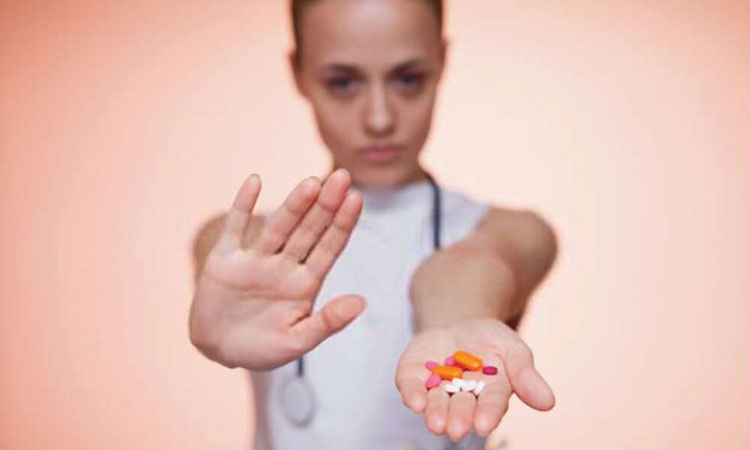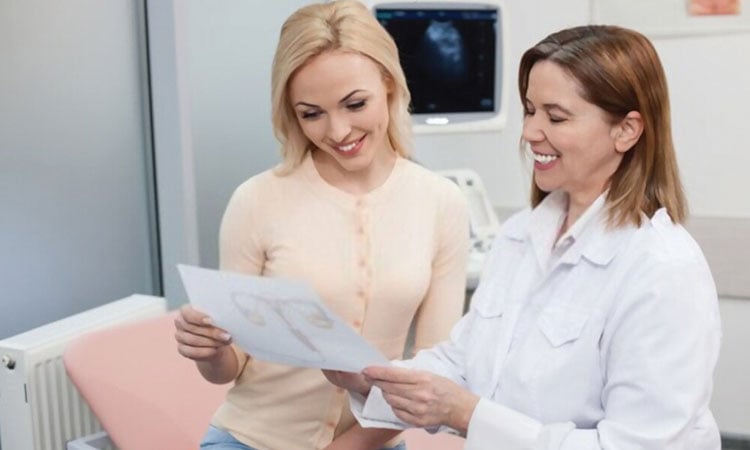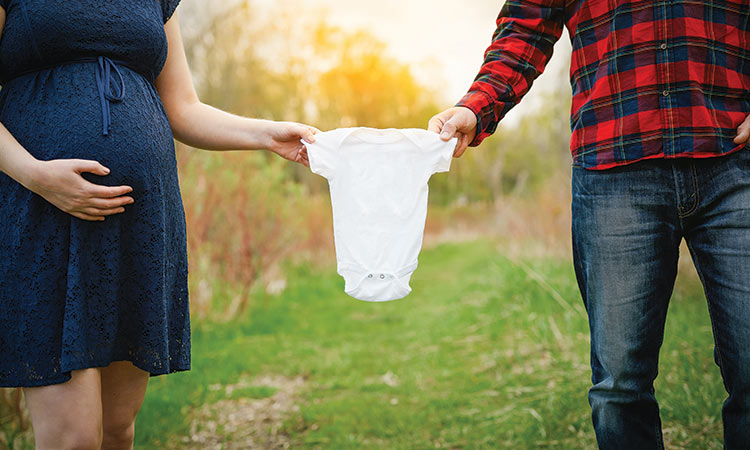The dynamics of marriage and having kids have changed a lot in the recent decade. As late marriages have become the norm, many women think (and get the time to think) about having kids only after crossing 30 years. Let’s find out how to prepare the body for pregnancy after 30.
You might be thinking why there is a requirement of preparing your body for pregnancy in your 30’s. The fact is, even though you look healthy and physically fit, your body is not the same as you had ten years back, especially when it comes to pregnancy.
Age and fertility are interlinked. As age increases, fertility decreases. This is applicable to both men and women. The clock surely is ticking. The good news is that there are ways to prepare your body for a healthy pregnancy even after 30 years.
Is It Difficult To Get Pregnant After 30?
To understand whether pregnancy after 30 is tough, you need to learn a bit of reproductive science. The peak reproductive years of women are considered between late teens and late 20s. By age 30 years, fertility starts to shrink. The rate of fertility decline increases as you reach your mid-30s.
By the time you reach your 45 years, fertility will be declined excessively so that getting pregnant naturally will not be possible for most women. Why does fertility decrease as the age increases?
To understand this, you should know some facts. During the fetal life of a baby girl, she carries around 7 million eggs. After this, not even a single new egg will be formed at any stage of her life. On the other hand, most of the eggs will be gone in due course.
Calculate Due Date With Conception Date
By the time a baby girl is born, she carries only around one million eggs. As the girl grows up, the number of eggs will reduce markedly. By the time she attains puberty, the number of eggs will be reduced to around three lakh.
Out of these, only 300 to 400 will be ovulated during a woman’s reproductive lifetime. As you can see, the number of eggs continues to reduce as one grows older. The eggs also get aged. So chances of pregnancy after 30 are also lesser than say that when a woman is 20.
This indicates quality and quantity of the egg will decline as your age increases.
And “aged” egg will not fertilize as fast as the young eggs. Now you understand why fertility is affected by age.
Our panel gynaecologist Dr Ankita Patel Tayal says that as we age, women can have a harder time getting pregnant at all and a higher chance of conceiving with an abnormal egg, which could result in a miscarriage or a baby with a chromosomal abnormality such as Down syndrome. Risks of chromosome anomalies in embryos rise sharply after age 35, although the risk is is still low. At age 25, Down syndrome risk is about 1 in 1,400. At age 35, the odds are about 1 in 350; at age 40, the risk increases to 1 in 100.
Furthermore, studies shows the risk of uterus related health issues like uterine fibroids, blockage in the Fallopian tube, PCOD, and endometriosis increases with age. All these contribute to a sharp decline in fertility after the mid-thirties.
However, researches also shows the chances of getting pregnant between 30 – 34 years will still be as high as 84%. But the problem is that the risk of miscarriage and pregnancy-related issues will also rise significantly with age.
The chances of pregnancy during the late 30s that is from 35 to 39 is considerably high when compared to getting pregnant in early forties, but still significantly lower than those in their early 30s.
How To Prepare Your Body For Pregnancy After 30s
It is important to prepare your body for pregnancy after 30. Focusing on pre-conception health increases your chance to conceive as anticipated and hold a healthy baby.
While some women could prepare their bodies for pregnancy in a matter of weeks, some women need months to make their bodies ready for pregnancy.
Let us see how to prepare your body for pregnancy a year in advance. Here are a few steps you have to take while preparing for the healthiest pregnancy possible naturally after the 30’s.
1. Stop pills

You might be on pills or other contraceptive measures like Intrauterine device (UTI) for a long time now. Stop using contraceptive pills or take out copper UTI’s before one year you plan your pregnancy.
2. De-stress
Many studies show intense stress can potentially suppress ovulation and even sex drive. Some chemicals secreted by the parotid gland in response to stress can act against getting pregnant. You can’t run away from stress at this age or this phase of life.
However, you have to manage physical and mental stress for getting pregnant as you planned. You can rely on a few things like yoga, meditation, massage, breathing exercise, reading, relaxing baths, good sleep, etc. for distress yourself.
3. Be cautious about medicines
If you have an existing medical condition and if you are taking medicine for it, it is important to ask your doctor if it is safe to take while trying to get pregnant. If so, ask the doctor to prescribe alternative medicines that will not affect your pregnancy.
It is found that medicines like quinine can potentially obstruct ovulation. Likewise, if you have dental treatment, it is better to finish it before trying to get pregnant. It is always better to proceed to pregnancy with healthy gum and teeth.
4. Schedule a pre-pregnancy health care visit

It is always better to visit an ob-gyn before you start trying to get pregnant. The doctor will examine your medical and family history to see the possibilities of any underlying health issues that run in your family that may affect your pregnancy.
The doctor will also assess the medicines you are presently taking. He will also make sure you will take all the recommended vaccines before pregnancy.
5. Start limiting your exposure to toxins
Researches show that exposing to chemicals like pesticides affect female fertility directly or indirectly. Therefore it is important to avoid getting exposure to toxins.
For this, start eating vegetables and fruits bought from local farmers. This will ensure they are fresh and devoid of any harmful chemicals. Likewise, use BPA safe bottles and containers. When it comes to beauty treatments, return to nature.
By planting indoor plants, you can bring down in-home air pollution. While choosing fish, opt for fish low in mercury. Avoid any situation where you might be exposed to toxins.
Healthy Lifestyle That Makes Conception Easier
Some lifestyle changes are much required while you are trying to get conceive. Though there are very good changes of pregnancy after 30, by making healthy lifestyle choices you not only increase the chances of conceiving quickly but also having a smooth pregnancy and delivery.
1. Getting ready for pregnancy mentally
Always make a plan; however, never expect everything to happen as you planned. You should toss all of your expectations out of the window. Pregnancy is something that will not happen as you expected. Decide to take one by one issue at a time as it comes.
Maintain a healthy and open relationship with your partner. This alone will take a lot of tension from your mind. If there is someone to share all your concerns and responsibilities for the upcoming months, that will make you mentally strong.
Dr Ankita Patel Tayal, MD OBGYN, recommends to aim for 7 to 8 hours of sleep per night to increase your chances of getting pregnant. A study conducted by the American Society of Reproductive Medicine (ASRM) found that women who had low-quality sleep had lower fertilization rates during IVF than those who got good quality sleep, in part because sleep helps balance our hormones. Plus, the more tired and stressed you are, and the less likely you may be to exercise and eat healthy.
2. Diet that helps in conception
While trying to get pregnant, it is important to add “fertility foods” to your diet. Food loaded with antioxidants, vitamins, minerals, and omega e fatty acids is considered fertility food. These are beneficial for reproductive health. Pregnancy after 30 calls for some dietary changes as well.
Figs, dairy, salmons, berries, leafy vegetables, eggs, beans, maca root, and yams are important fertility foods.
Also, consider increasing the intake of coenzyme Q10. Studies proved that Coenzyme Q10 plays an important role in generating good quality eggs. Rich food sources of coenzyme Q10 include mainly meat, poultry, and fish.
It is important to include nuts, grains, fruits, and beans, which are a good source of inositol. This nutrient also increases the egg quality evidently.
Remove unhealthy foods from your diet and add healthy foods. If possible, try to choose organic, hormone-free, GMO-free, whole foods that nourish you. Include lots of fresh fruits and vegetables. Also, drink lots of water.
3. Stop smoking and quit drugs

Avoid smoking while trying to conceive. Giving up smoking improves the lining of uterus. It’s also a good idea for women to stay away from secondhand smoking as it also more like to interfere with getting pregnant.
Stay away from Marijuana and other recreational drugs while trying to get pregnant. These drugs can potentially affect fertility, thereby trim down the chances of getting pregnant.
4. Stop drinking alcohol
Drinking alcohol brings about fertility problems in both men and women. Drinking alcohol contribute to menstrual issues like heavy, irregular, or no periods. It will affect the ovulation and health of the eggs produced.
5. Limit caffeine intake
If you are a coffee lover, beware. Excessive intake of caffeine gets in the way of conceiving and increases the risk of miscarriage. As a pregnancy after 30 is already considered moderate risk, it is best to ditch caffeine for other non-caffeine related beverages.
6. Exercises that help in conception
Regular exercising is highly beneficial if you are planning for a pregnancy after 30. Raising your fitness levels makes it easier for you to get pregnant. Maintaining a healthy weight increases your chances of conceiving.
A regular, moderate exercise helps to improve your fertility. You can opt for any type of exercise that suits you. You can also choose a variety of activities that makes exercise enjoyable and relaxing.
However, stay away from intense training while trying to get pregnant. Intense physical activities, especially without adequate nutrition intake, can drain out the essential baby-making nutrients from the body.
Therefore, never push yourself to your limits when it comes to exercise while planning to get pregnant. It might increase the body’s stress element, thereby bringing about issues like irregular menses and ovulation dysfunction.
Yoga, Barre, and Pilates are three forms of physical activities that help you with conception.
Barre focuses on low-impact, high-intensity movements. It is designed to strengthen your body and enhance flexibility. The workout technique of barre is inspired by elements of ballet, yoga, and Pilates. It is usually conducted in group classes.
Pilates is a low-impact exercise designed to strengthen muscles and to improve postural alignment and flexibility. Pilates focuses on developing core strength. It involves slow and precise movements and breathes control that helps to boost your flexibility.
Practicing yoga not only helps you physically but also good for mental relaxation. There are different yoga postures that help to nourish and relax your reproductive organs and helps in conception. Here are four yogasana that helps you with conception.
- Supta Baddha Konasana(Reclining bound angle pose)
- Viparita Karani (Legs up the wall)
- Prasarita Padottanasana (Open-legged forward bend)
- Agnistambhasana(Double pigeon)
7. Supplements that help in conception
Prenatal vitamins satisfy your nutrient requirement as you plan your pregnancy ahead. Taking these vitamins way before pregnancy will help to increase uterine health. Your doctor will suggest taking iron, choline, folate, and iodine while trying to get pregnant.
Vitamin D is an important factor that determines a healthy pregnancy. It is important to make sure your vitamin D level is optimum before trying to get pregnant. A low level of Vitamin D brings about several complications during pregnancy.
Check the vitamin D level, and in case of low vitamin D level, depending on the vitamin D level, your doctor will prescribe the recommended dosage of vitamin D supplement.
CoQ10, Acetyl L-carnitine, omega 3, B vitamins, calcium, Vitamin E, and zinc are other supplements that aid in enhancing fertility and conceiving. However, the right balance of these vitamins and minerals is also equally important. Hence let your doctor decide the right dose.
8. Underlying conditions and conception
In the thirties, you are at the risk of having some underlying health conditions that make your path to pregnancy difficult. Some common underlying health issues women who are 30+ might contract are; uterine fibroid, hypertension, PCOD, diabetes, and hormonal issues.
These underlying health conditions, if not treated and managed well, can complicate your pregnancy journey. Preexisting medical conditions can increase the risk of miscarriage and preterm birth.
9. Some tips to get pregnant
- Keep track of your menstrual cycle: By tracking the menstrual cycle, you can find how regular your periods are. You can also find your fertile window by tracking the menstrual cycle.
- Monitor ovulation: You can track your ovulation by charting down BBT (basal body temperature) or by means of ovulation predicting kits. Other than this, you can also listen to your body to pinpoint your ovulation. You might feel a slight abdominal cramp while ovulating. This will be around the middle of your cycle. Also, you can say if you are ovulating by evaluating the cervical mucus. This will usually be white and thick. During the time of ovulation, it turns thinner and clearer. Make use of the apps that can help you track your menstrual cycle and ovulation dates.
- Have intercourse every other day during the fertile window: By tracking the ovulation, you can find the fertile window. The “fertile window” has duration of 6 days. Five days before the day of ovulation and during the day of ovulation. Having sex every other day during this period increases the chances of getting pregnant.
10. Signs your body is ready for pregnancy
Here are some signs that indicate your body is ready for pregnancy:
- Your periods become regular.
- You get all those signs of PMS. This indicates your ovulation cycle is also perfect.
- Having normal bleeding and correct duration of the period indicates the lining of the uterus produced and shed each month is perfect.
- No pain in the pelvic region (pain in the pelvic region indicates issues lie endometriosis, cysts, etc.)
- No signs of hormone imbalance


